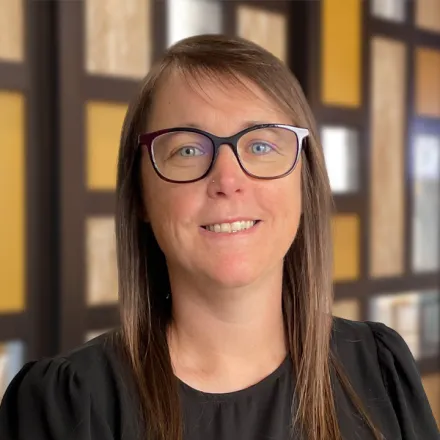
Setting goals and priorities for each stage
It’s never too early, or too late, to manage your money better. These financial tips can help you plan, no matter what your age.
Over the course of your lifetime, you’ll make a lot of decisions. Looking back, most will seem trivial but a few – like your choice of career or life partner – can shape your future. The same is true for the priorities you set for your money.
Financially-speaking, here’s what deserves your attention at every age and phase of your life.
Financial advice for your 30s
Life in your 30s is about finding your feet professionally and financially. You may take on new responsibilities like owning a home or raising a family. The trouble? Dealing with your mortgage and growing obligations can easily distract you from other key areas of your finances. What’s vital is finding the right balance, so you don’t miss opportunities to set you and your family up for a bright future.
Put money away regularly – even if just a little
While debt payments are probably eating up a good chunk of your after-tax income, it’s important to still find room for a savings plan. When you’re young, you have a valuable ally – time. Through the power of compounding, putting even a few dollars a week into an investment program at this stage of your life can make a huge difference later on.
Let’s say you invest $3,000 a year in a tax-free investment beginning at age 30, earning a 5% annual rate of return. At 65 you’ll have over $300,000 put away. The story’s quite different if you hold off until you’re 45 to start saving. Even if you contribute much more, say $5,000 annually, at the same investment return you would accumulate far less, roughly $188,000, by the time you reach the same age.
Take advantage of free dollars for your kids’ education
Once you start a family, consider opening a Registered Education Savings Plan (RESP). When you contribute to an RESP, you’re eligible to receive the Canada Education Savings Grant which is essentially free money for your children’s education. The basic CESG amounts to twenty cents for each dollar you contribute to a maximum of $500 annually per beneficiary ($7,200 lifetime limit). That’s like receiving a 20% return on investment, right off the top.
Get rid of high-interest debt
It’s never too early to rid yourself of expensive consumer debt – specifically high-rate credit card debt – and use the cash flow that’s going to paying interest more productively. Slashing any amount off a credit card balance costing you 20% interest is equivalent to earning 20% after tax, risk-free.

Financial advice for your 40s
If responsibility is something you discover in your 30s, you meet it head-on in your 40s. Your family may be growing, and so are your expenses. The need to help out your aging parents is becoming a reality. At the same time, you may be adjusting to life after a divorce or remarriage.
This is the decade when you’re likely to enter your peak earning years. Don’t take that as a green light to spend your money frivolously or borrow excessively. You’re still young enough for your financial choices to have a major impact down the road – for better or worse – so choose wisely.
Check your retirement plan’s progress
Step back and determine whether you’re on track to achieving your retirement savings goals. If you’re behind where you’d like to be, getting back on course might be as simple as adjusting your portfolio’s asset mix or saving a few dollars more each month. Or, the solution could be more involved. Either way, now’s the time to crunch the numbers with your advisor and find out where you stand.
Capitalize on tax breaks
As your income climbs, higher taxation becomes an issue. Take advantage of ways to keep more of your income in your hands. Catch up on any unused RRSP and TFSA contribution room. Consider income splitting strategies, including opening a spousal RRSP or lending money to lower-income family members to invest. Expecting a tax refund? Get in the habit of re-investing rather than spending those dollars.
Re-evaluate your insurance needs
Until now you may have relied on your employer’s group insurance policy to protect your family. But if your living expenses or debt payments have risen in step with your earnings, that basic level of life or disability protection is probably no longer enough. Review your coverage, including exploring the advantages of having your own individual policies. Permanent life insurance can also deliver tax benefits, particularly valuable if you maximize your RRSP and TFSA contributions year-in and year-out.
Financial advice for your 50s
By the time you enter your 50s, there’s a good chance your mortgage debt is winding down. Your kids are older and may have started leaving the nest. Odds are you’re seeing extra cash at the end of the month. Should you spend and live it up a little now? Or invest more for retirement? In your 50s it’s not only market risk that’s a potential threat to your financial security. There’s a growing chance health issues could derail your plans.
Assess the risk level of your portfolio
These are the years when you look ahead to the day you’ll switch your portfolio’s direction from accumulating assets to generating income.
A key in preparing is to decide how much volatility you are willing to accept. What you want to avoid is drawing on equity investments through a bear market. Doing that could severely curtail your portfolio’s longevity. Instead, invest to strike a balance between protecting your capital and ensuring you still have enough growth to outpace inflation, so you won’t outlive your savings.
Prepare for future health care costs
It doesn’t matter if you’re struck down by a sudden illness or face a steady decline, getting older can be expensive. So much so, you could deplete your retirement savings paying for it all. After ensuring your life and disability insurance policies are in order, weigh the benefits of purchasing specialized coverages such as critical illness protection or long term care insurance while you’re still in good health and premiums are less expensive.
Preview your retirement income
At this point your retirement picture should be getting a whole lot clearer. You should have a good idea how much income you’ll receive from guaranteed sources like your company pension, CPP and OAS. That will help you figure out just how much you’ll need to generate from your own resources.
If you’re well on the way to having a sizeable RRSP, ask whether it makes sense to start tapping those funds early to level out your retirement income. That can help you minimize your future tax bill and avoid traps like the OAS clawback.
Looking for a quick and easy list to help you and your family get started on making important financial decisions that have life-long impacts? Download our financial planning checklist for every stage of life.
Financial advice for your 60s
If you’ve planned well, your 60s will be about enjoying life on your terms with those closest to you. You’ve gone from raising kids to playing with your grandkids. Retirement? It’s now in full view.
While life’s a lot simpler in many ways, there are new questions. How will you maintain your lifestyle once your pay cheques stop? What are the best ways to help out the next generation? Should you downsize? This phase of life can last 20 to 30 years or more – plan for it.
Watch your withdrawal rate
If you’re looking to your investment portfolio to provide much of your retirement income, be careful with how much you withdraw. Low interest rates coupled with lengthening life spans mean it can be a mistake to follow the conventional wisdom which says you can safely withdraw 4% annually from a portfolio without outliving your money.

It’s crucial to work with your advisor to ensure your income strategy recognizes new economic realities and is tailored to your personal circumstances. Your advisor can review your options for guaranteeing more income later in life, such as purchasing annuities or deferring your CPP benefits to age 70 to boost your payments.
Update your estate plan
When you’re busy with kids and career, it’s easy to lose sight of your estate plan. But once you hit your 60s, it’s the one thing you no longer want to neglect. Make sure your estate planning toolkit, including your will, powers of attorney and representation agreement, is up to date. Should incapacity or death strike, you can be assured your wishes will be carried out.
Retirement often goes hand-in-hand with growing tax liabilities. Accumulated capital gains on an investment portfolio or vacation property could saddle your estate with a significant tax bill, impacting the legacy you’re able to pass on to your loved ones or charitable causes. Investigate how you can use life insurance, trust agreements and related strategies to avoid, or at least defer, the tax consequences.
Include a chat with your advisor about how you can help your children or grandchildren now, when they need it most, and while you’re still around to see the rewards.
Have a plan, no matter your age
As your life changes, make sure your financial plan keeps pace. Your BlueShore financial advisor is a partner you can count on to help you make the best choices through the years, as your circumstances and priorities evolve. Speak with us and keep your finances moving in the right direction, from one decade to the next.

Have a question? Ask an expert
Terrie Quilton Financial AdvisorMutual Funds Investment Specialist
Our team of experienced professionals are here to answer any questions you may have.

